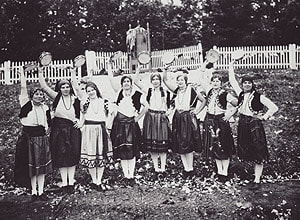 Italian Americans have a long and interesting history in the Upper Peninsula of Michigan. Discover the unique history of the Upper Peninsula at the 75th Annual Upper Peninsula History Conference. Sault Ste Marie, MI - June 21-23, 2024 Each year, the Historical Society of Michigan hosts a conference tailored only to U.P.-based history. In 2023, our 74th Annual U.P. History Conference was held in Iron Mountain and featured a fun, casual atmosphere with keynotes, content sessions, tours, delicious food, and more. For more information: www.hsmichigan.org/programs/conferences/upper-peninsula-history-conference From the collection of the Central Upper Peninsula and Northern Michigan University Archives
0 Comments
As you are researching your family history, don’t overlook your family traditions that involve food! You might not have considered food as being connected to family history in any way, but it is. Food and drink has a way of bringing people together.
Does your family have a recipe they make every year for the holidays? Did grandma bring her recipe for meatballs over from the old country? Make sure to explore the rich food heritage of your family’s home town too. For example, my father’s family is from Sicily. Meat, including lamb, pork, and veal, is common in central Sicily, where locals claim they invented the meatball. Pasta is usually topped with a hearty, spicy tomato sauce. Bologna is famous for Parmigiano Reggiano and prosciutto di Parma whereas Piedmont is a region celebrated for its beef. Document the recipes so that they can be passed on to future generations. Treat handwritten recipe cards that same way you would a cherished photograph. Digitize them and share them!  Francis Ford Coppola was born in 1939 in Detroit, Michigan, into a creative Italian-American family. His father, Carmine Coppola, was a composer and musician. His mother, Italia Coppola (née Pennino), had been an actress. Fun Fact: Francis received his middle name in honor of Henry Ford, not only because he was born in the Henry Ford Hospital but also because of his father's association with the automobile manufacturer. At the time of Francis’ birth, Carmine was a flutist as well as arranger and assistant orchestra director for The Ford Sunday Evening Hour, an hour-long concert music radio series sponsored by the Ford Motor Company. Carmine was also first flutist with the Detroit Symphony Orchestra According to the 1940 Federal Census, the future director lived at 17540 Kentucky Street in Detroit. The family left Detroit for New York in 1942 when Carmine was named principal flutist for the NBC Symphony Orchestra. Photo Copyright: Physical rights are retained by Academy of Motion Picture Arts and Sciences. Copyright is retained in accordance with U.S. copyright laws. There is a monument to Dr. Joseph De Horatiis on East Grand Boulevard and Gratiot in Detroit. Who was Dr. De Horatiis and why is there a monument to him?
Giuseppe (Joseph) De Horatiis was born in Agnone, Campobasso, Italy on August 20, 1879. His father's name was Pietro De Horatiis. In 1905, Joseph was working at the University of Naples as a faculty member of Medicine and Surgery (Regia Universita di Napoli Facolta di Medicina e Chirurgia). He immigrated to the United States in 1906 and settled in Detroit. He graduated from the Detroit College of Medicine in 1909 and began a medical practice in Detroit. June 20, 1943, a fight broke out at the Belle Isle bridge. The Detroit Historical Society reports that more than two hundred black and white individuals engaged in fighting on Belle Isle. Though police suppressed the violence by midnight, tensions soared and later that night, two rumors led to aggressive action on both sides. African Americans at the Forest Social Club in Paradise Valley (Paradise Valley was the business district and entertainment center of a densely-populated African-American residential area in Detroit) were told that whites had thrown a black woman and her baby off the Belle Isle Bridge. They formed a furious mob and moved near Woodward, breaking windows, looting white businesses and attacking white individuals. In a nearby area, angry whites had gathered after hearing that black men had raped a white woman near the same bridge. Around 4am, a mob of white men formed outside the Roxy Theatre on Woodward. When the movie let out, black men exiting the theatre were surrounded and beaten. As word of both incidents spread, so did the violence. Gangs of people roamed the streets. White mobs overturned cars owned by blacks and set them on fire and beat black men. Black looters critically wounded a police sergeant in a gun fight. Dr. Joseph De Horatiis entered the melee when he was answering a call in the riot area on June 21, 1943. From The Detroit Free Press, Saturday, June 26, 1943 He served his fellowmen; Grave Pays Doctor for Christian Life By Lyford Moore, Free Press Staff Writer Fire and passion born of bitter grieving for a friend were in Father Hector Saulino's voice Friday morning in Blessed Sacrament Cathedral as he preached the funeral sermon for Dr. Joseph De Horatiis, one of the innocent victims of Detroit's race rioting last Monday. Father Saulino's tone said what he did not put into words, that America had been served far better by Dr. De Horatiis than his adopted country had served him. BORN IN ITALY He was born at Agnone in the Campobasso Province of Italy 64 years ago and came to America in the early 1900's. He came here as Italians did in those days because this was the land where all men were equal, the land of freedom and tolerance where even a humble man could make his way to the top. Sitting in the Cathedral as Father Saulino said of his murdered friend that "everything he did was motivated by his love for man." THE GOOD DOCTOR He said the "good doctor" had never in his life sent a statement to a patient nor been the first to bring up the question of money. "Many times," he said, "the doctor refused to take any money and often he paid the bills of specialists he called into cases. Many times, he loaned great sums of money without taking notes. After 37 years of service he died poor, owed much of that money still." But the doctor did far more than that, according to the priest. He never refused a patient and handled thousands of charity cases in his lifetime. "If the patient was white or black it would have made no difference. "The doctor gave his life in the line of duty," Father Saulino said. On his way to see a sick man Monday morning, he was halted in the trouble zone near Warren and Hastings. "Better not go into that section, doctor," a policeman warned him According to the priest, Dr. De Horatiis replied: "I have to see a patient, and I am going to him.' Later he was found badly beaten and unconscious at Erskine and Beaubien. He died soon afterward. The Rest of the Story Aaron Fox, an 18-year-old black man was charged with first-degree murder in connection with the death of Dr. Joseph De Horatiis. Fox was accused of throwing a rock through the window of the physician's automobile which struck him on the head, causing him to lose control of the car and crash into a tree. Aaron Fox was tried, convicted and sentenced in 1944 for the riot murder and sent to Jackson Prison to serve a 7 to 15-year sentence. Fox was convicted on the testimony of several young men who subsequently went to jail themselves. They repented while in jail and agreed to testify that they had framed the young man. Fox was released from jail. In 1945, the monument was erected to Dr. Joseph De Horatiis. The inscription reads: "Dr. Joseph De Horatiis, born 1879, died 1949, with Christian charity he devoted his life to assuage the sufferings of his fellowmen. His life moved ever upward by dint of sacrifice. Erected by the Italian-Americans of Detroit, 1945." Photo Copyright: Physical rights are retained by Detroit Public Library. Copyright is retained in accordance with U.S. copyright laws. The winners of the Unsung Heroes Award for the 3rd Quarter 2019 are being announced at the Federation of Genealogical Societies Conference in Washington, DC! The Unsung Heroes Award is a collaborative program between The Genealogy Guys Podcast and Vivid-Pix, makers of RESTORE software. The awards program was launched in 2019 to acknowledge and celebrate members of the genealogy community who are leading the way in digitizing, indexing, and transcribing photographs and documents. Nominations are accepted in five categories: Individuals; Societies; Libraries & Archives; Youth; and Posthumous. Awards will not necessarily be made in all categories each quarter. Presentations of the awards for winners for this quarter are being made by Rick Voight, CEO of Vivid-Pix. The Society winner is the Michigan Italian Genealogy Society for its work in digitizing and indexing funeral cards for people with Italian surnames and making them available on the Internet. A majority of the cards are from the Detroit area dating from 1924 to 1999, and they contain names, birth and death dates, and the name of the funeral home. Many also have photographs of the individual. This online collection can be accessed at https://miitaliangs.weebly.com/blog/detroit-area-funeral-cards. The Michigan Italian Genealogy Society explores various methods of tracing Italian ancestors, promotes education for beginners and more experienced genealogists through social media and blog posts. The Society is dedicated to promoting Italian family history and genealogy. It is dedicated towards educating members and the public in the methodology of finding one’s roots. Their goal is to empower their members in their search for family records by providing the necessary tools and expertise needed. Discover that family history is an interesting, rewarding hobby that will enable you to discover your past and preserve your heritage for future generations. Michigan Italian Genealogy Society is a proud member of the Historical Society of Michigan and the Michigan Genealogical Council. Kenneth Merique, a director with The Polish Genealogical Society of Michigan, generously donated hundreds of funeral cards he has collected over the years. Most of the deceased are from the Detroit area, but some are distant relatives with Michigan connections. The Michigan Italian Genealogy Society has digitized these resources and has posted them to our website. An index is also provided. This collection represents a unique set of records that can provide clues to other evidence, including birth records, a death certificate, funeral home records, and cemetery records. "It's hard for me to tell you how impressed I am with the work that you've done with the funeral cards. They are a huge resource for genealogists and historians, and what you have done is tremendous." George Morgan, The Genealogy Guys Congratulations to the Michigan Italian Genealogy Society and thank you for all of your hard work to make these wonderful records available! Read more here: Kenneth Merique, a director with The Polish Genealogical Society of Michigan, generously donated hundreds of funeral cards he has collected over the years. Most of the deceased are from the Detroit area, but some are distant relatives with Michigan connections. The Michigan Italian Genealogy Society thanks Ken for his contribution!
Click on the Funeral Cards link to browse through the collection. Did you know that the Detroit Public Library has a fantastic digital collection of historic photos? These photos can help breathe life into your genealogy research.
Check it out here: Copyright: Physical rights are retained by Detroit Public Library. Copyright is retained in accordance with U.S. copyright laws. Did your Italian ancestors settle in the Upper Peninsula? If so, you won't want to miss the Upper Peninsula History Conference hosted by the Historical Society of Michigan.
The 70th annual Upper Peninsula History Conference will be held June 28-30, 2019, in Escanaba, MI. The annual Upper Peninsula History Conference pays particular attention to U.P. history topics and themes. This conference moves to a different location in the Upper Peninsula each year to also explore that area’s heritage. In addition, the annual Upper Peninsula History Awards are presented at this conference. The Upper Peninsula History Conference offers…
Mark your calendar for this year's Abrams Foundation Family History Seminar
Date/Time: 07/12/2019 – 07/13/2019 All Day Location Michigan History Center Welcome to the 2019 Abrams Foundation Family History Seminar hosted by the Archives of Michigan and the Michigan Genealogical Council. Featuring Tina Beaird Tina Beaird is owner of Tamarack Genealogy and is also a genealogy librarian at the Plainfield Public Library in Plainfield, Illinois. She lectures extensively on topics including Scottish genealogy, military research and archival preservation. She is a member of the Genealogical Speakers Guild and the Association of Professional Genealogists as well as a board directors for the Illinois State Genealogical Society, the Illinois State Historical Records Advisory Board, and the Northern Illinois Historic League. Tina is also a commissioner for the Illinois WWI Centennial Commission. She has been published in the National Genealogical Society Magazine and TIARA: The Irish Ancestral Research Association Quarterly. Tina has provided research assistance for over fifteen years and has been researching her family’s history, as time permits, for over twenty years. Here is a great article from a few years ago about Detroit's bootlegging history. A fascinating read!
https://www.npr.org/sections/thesalt/2016/11/30/503617821/detroit-returns-to-its-prohibition-era-whiskeytown-roots-and-finds-new-life |

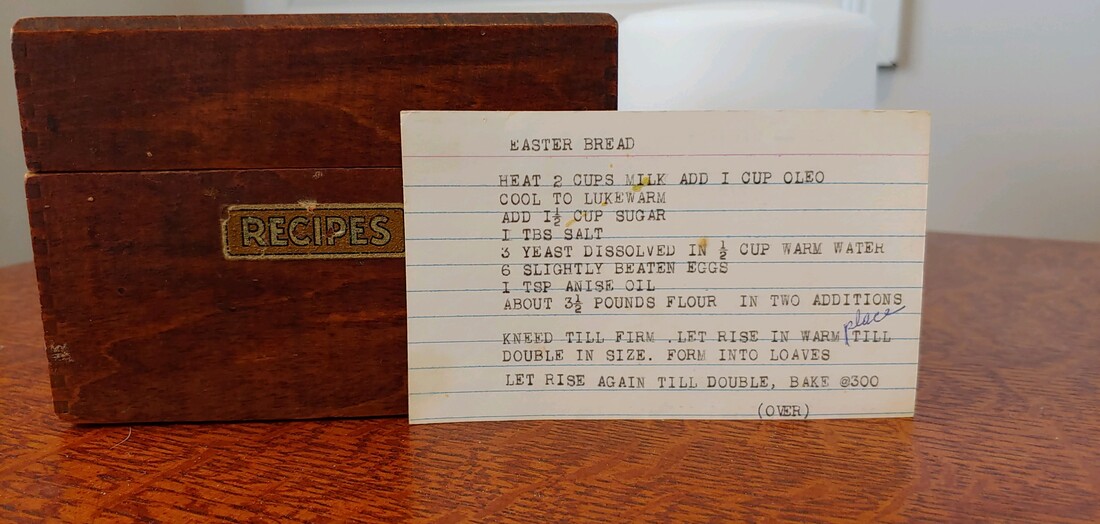
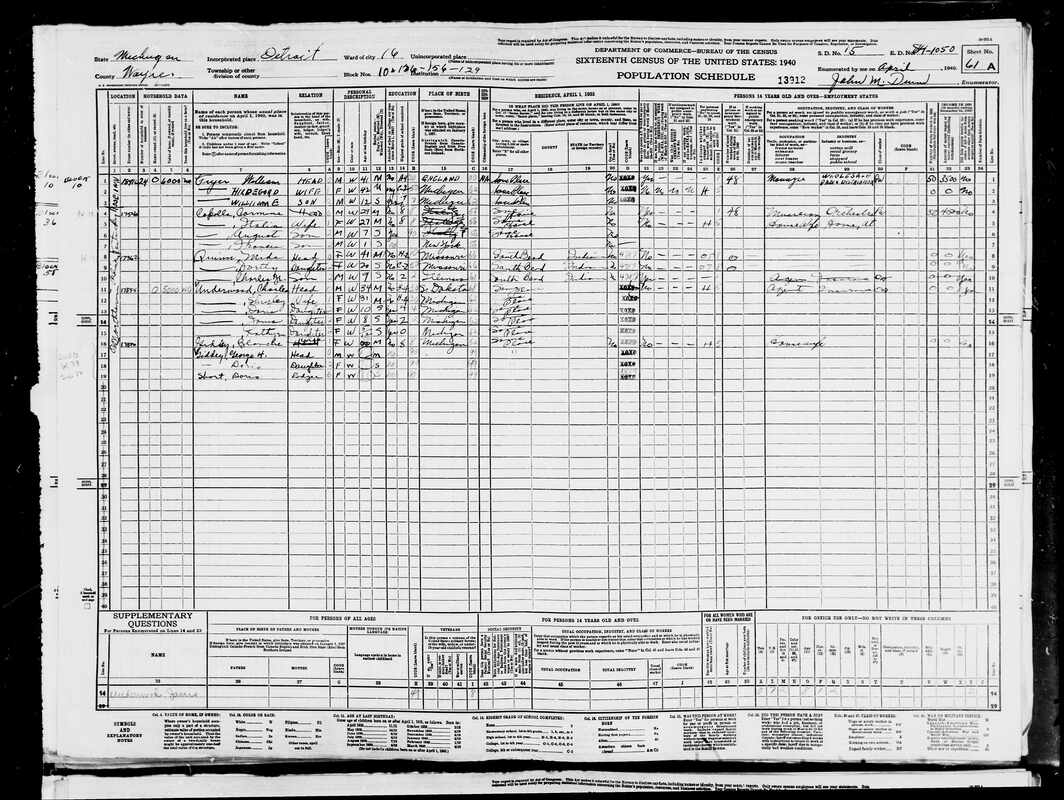
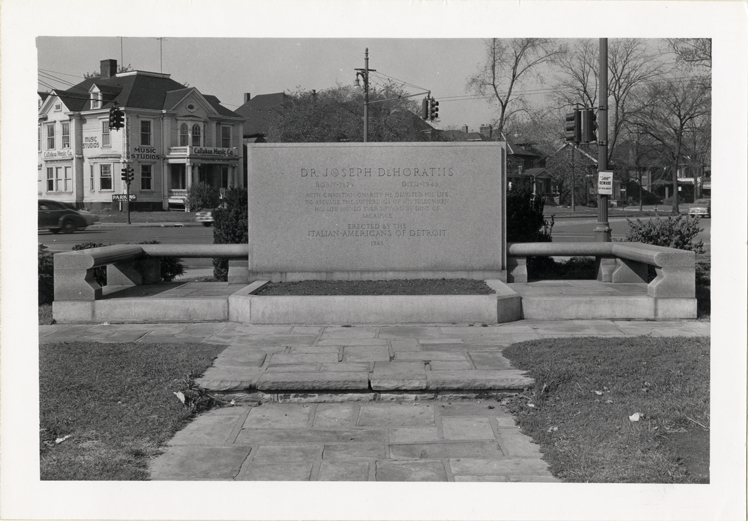
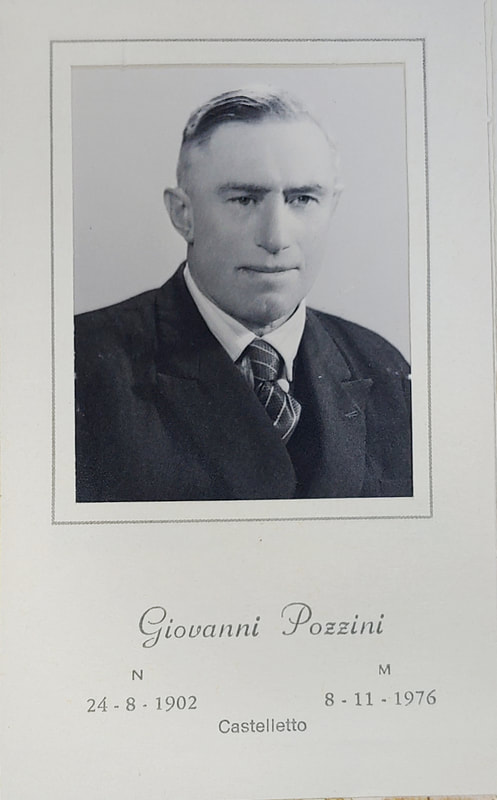
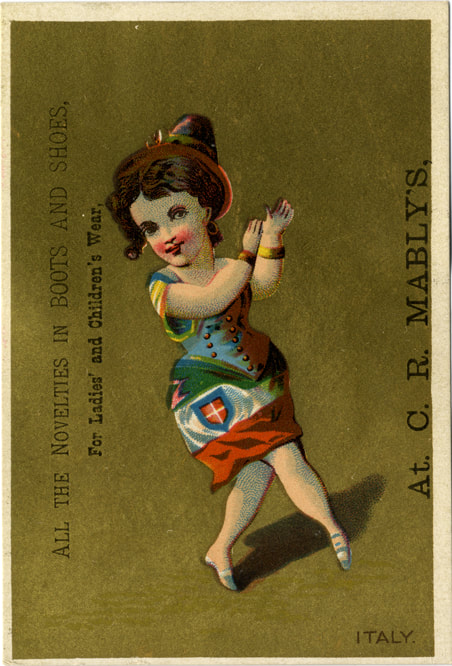
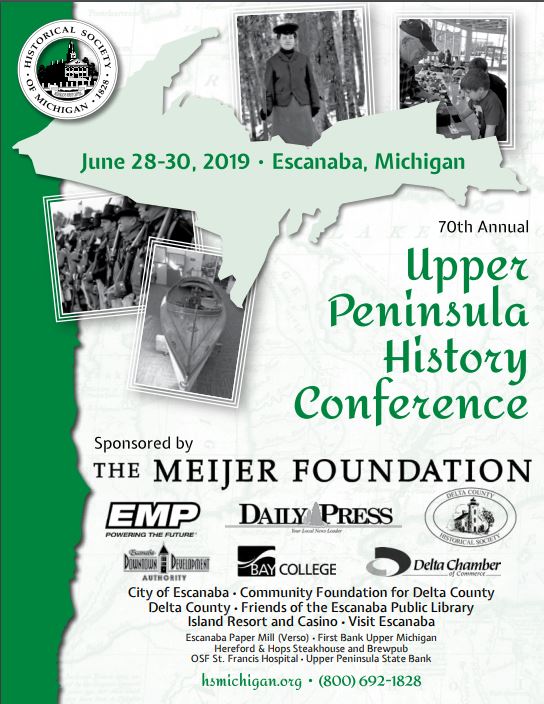
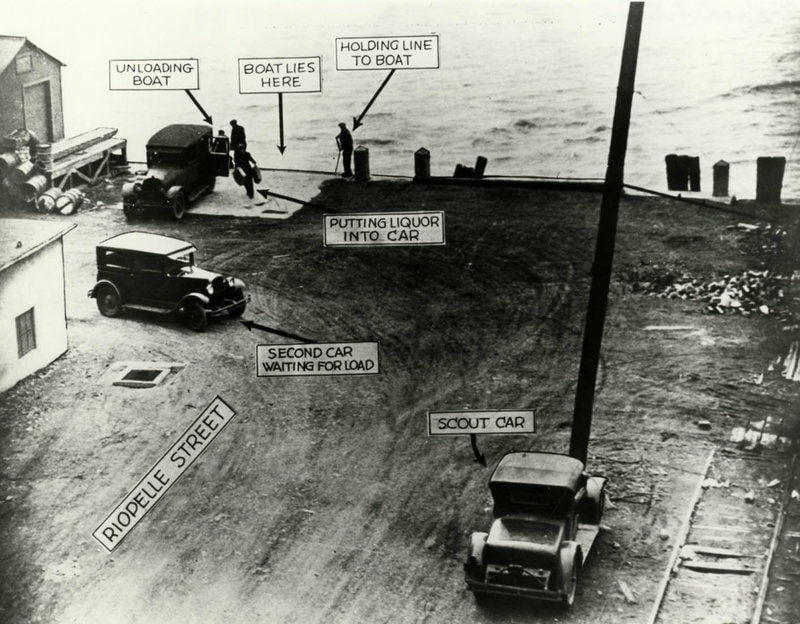
 RSS Feed
RSS Feed
